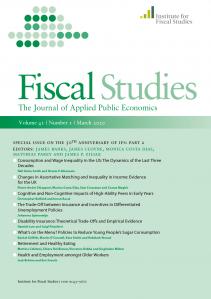

21 May 2020

An anti-obesity drive is about to see a tax introduced on sugary drinks across the UK, while Scotland is set to impose a minimum price on alcohol to target problem drinking. But does making unhealthy products more expensive persuade people to make "better" choices? And what are the trade-offs associated with doing so?
5 April 2018

CEPR Discussion Paper DP12499
13 December 2017

Soda taxes aim to reduce excessive sugar consumption. Their effectiveness depends on whether they target individuals for whom the harm of consumption is largest. We estimate demand and account for supply-side equilibrium pass-through. We exploit longitudinal data to estimate individual preferences, which allows exible heterogeneity that we relate to a wide array of individual characteristics. We show that soda taxes are effective at targeting young consumers but not individuals with high total dietary sugar; they impose the highest monetary cost on poorer individuals, but are unlikely to be strongly regressive if we account for averted future costs from over consumption.
4 December 2017

Corrective taxes have been implemented in a number of countries with the aim of addressing growing concern about the rise in obesity- and diet-related diseases. The rationale is that food consumption imposes costs on the consumer in the future that they do not fully take into account at the point of consumption (‘internalities’). Corrective taxes have the potential to improve welfare by reducing suboptimally high consumption. We review the literature on the size of these internalities and on the optimal corrective tax, which depends on the patterns of internalities, the price responsiveness of consumers, and on redistributive aims.
20 November 2017

Presentation given at Wellcome Trust seminar.
7 July 2017